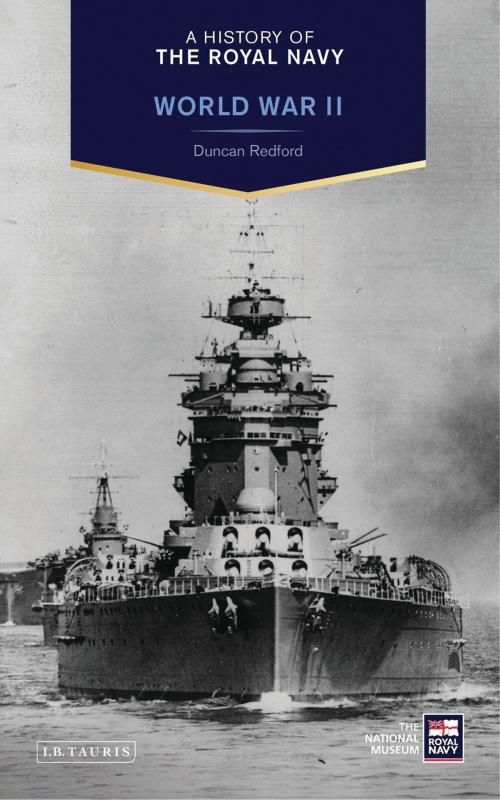| Author: | Duncan Redford | ISBN: | 9780857735058 |
| Publisher: | Bloomsbury Publishing | Publication: | March 27, 2014 |
| Imprint: | I.B. Tauris | Language: | English |
| Author: | Duncan Redford |
| ISBN: | 9780857735058 |
| Publisher: | Bloomsbury Publishing |
| Publication: | March 27, 2014 |
| Imprint: | I.B. Tauris |
| Language: | English |
The Royal Navy's operations in World War II started on 3 September 1939 and continued until the surrender of Japan in August 1945 - there was no 'phoney war' at sea. The navy played a central role in the evacuation of the retreating British army at Dunkirk, and later orchestrated the sinking of Germany's mighty battleship and Hitler's pride, the Bismarck. Without the Royal Navy's attention to the defence of Britain's seaborne trade - especially in the struggle against German U-boats in the Battle of the Atlantic - there would not have been food for the country, fuel for the RAF's operations or supplies to keep the army fighting in Europe, North Africa and the Far East. Yet the outstanding naval contribution to Britain's survival and eventual victory came at a heavy cost in terms of ships and to the men who had to face not just the violence of the enemy, but also the violence of the sea. This book argues that World War II was, effectively, a maritime war; it was the Royal Navy's war
The Royal Navy's operations in World War II started on 3 September 1939 and continued until the surrender of Japan in August 1945 - there was no 'phoney war' at sea. The navy played a central role in the evacuation of the retreating British army at Dunkirk, and later orchestrated the sinking of Germany's mighty battleship and Hitler's pride, the Bismarck. Without the Royal Navy's attention to the defence of Britain's seaborne trade - especially in the struggle against German U-boats in the Battle of the Atlantic - there would not have been food for the country, fuel for the RAF's operations or supplies to keep the army fighting in Europe, North Africa and the Far East. Yet the outstanding naval contribution to Britain's survival and eventual victory came at a heavy cost in terms of ships and to the men who had to face not just the violence of the enemy, but also the violence of the sea. This book argues that World War II was, effectively, a maritime war; it was the Royal Navy's war















